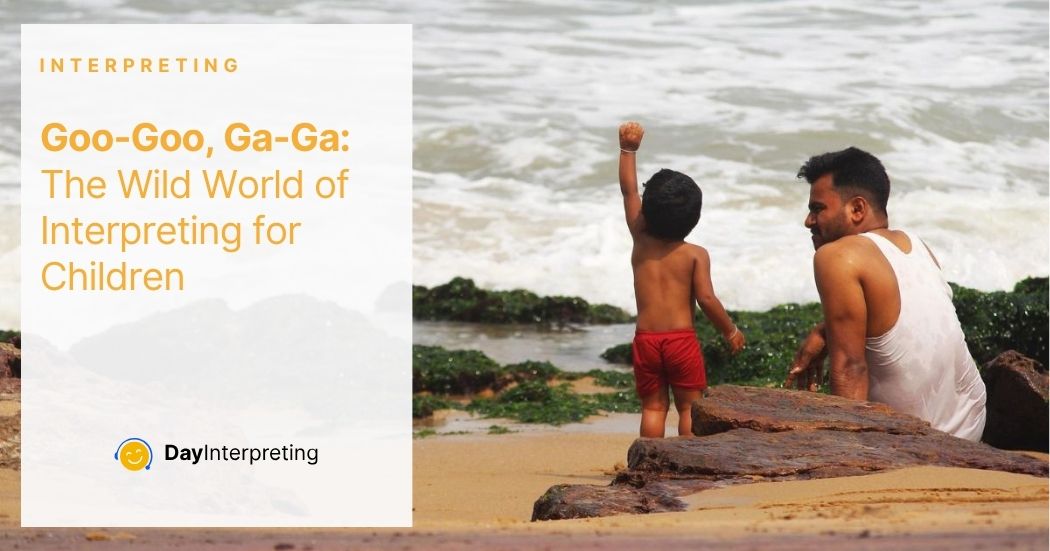Wait… Kids Need Interpreters? Oh yes. From schools and hospitals to courtrooms and asylum interviews, children around the world need interpreting services just as much—if not more—than adults. But there’s a twist: kids don’t talk like adults, and they don’t think like them either. Interpreting for children is its own kind of linguistic jungle gym: part storytelling, part emotional decoding, part improvisational theatre.
What Makes Interpreting for Children So Different?
Adults tend to use structured sentences and (usually) predictable patterns. Children? Not so much.
Here’s what makes it extra tricky:
- Kids invent their own words. (Yes, “snackadoodle” might mean cookie today.)
- They mix languages. Especially if they’re bilingual.
- They interrupt themselves. Or go on wild tangents. Or whisper.
- They use slang, TV phrases, baby talk, and inside jokes.
- They might be scared or shy in formal settings.
Interpreters need to catch all that and accurately relay it to an adult, often in high-stakes situations.
Where It Happens: Real-World Settings
1. Healthcare
Paediatric hospitals regularly call on interpreters for children undergoing treatment. Whether it’s explaining a diagnosis, translating consent forms, or helping a kid describe pain, interpreters make sure nothing gets lost in translation.
2. Legal and Immigration
Child witnesses, asylum seekers, or children caught in custody battles often need interpreting. And that requires extra care—interpreting exactly what’s said without adding pressure or trauma.
3. Education
From classroom learning to parent-teacher meetings, interpreters help kids access their education and help teachers understand their needs. It’s not unusual for interpreters to go from explaining algebra in French to translating a playground argument in isiZulu.
The Golden Rule of Interpreting for Children: Match Their Energy
Interpreting for children means being flexible—and sometimes even playful. While the content might still be serious, the delivery has to be age-appropriate.
Good children’s interpreters know how to:
- Adjust tone and vocabulary for different ages\
- Recognize when a child is using metaphor, imagination, or humour
- Keep communication soft and friendly (without talking down to the child)
- Switch gears fast when the mood suddenly shifts
It’s Not All Fun and Finger-Paint
In emotionally charged situations—like child protective services, family law, or trauma response—interpreters walk a fine line. They must stay neutral while ensuring the child feels safe, understood, and heard.
A Real-Life Challenge:
A child says something vague like, “He was mean to me.” Does the interpreter ask for clarification? Report it? Wait for the adult to follow up? In these moments, interpreters rely on professional ethics and coordination with the team on-site.
When Kids Say the Darnedest Things…
Yes, children sometimes say things that make absolutely no sense, or sound wildly inappropriate, but are actually innocent. Interpreters must decode these moments without embarrassing the child or distorting meaning.
Example:
A six-year-old says, “My tummy’s full of dinosaurs!”
Literal? No.
But they probably mean it hurts or feels weird. The interpreter must capture the child’s expression while making sure the adult gets the message.
Conclusion: More Than Words, Interpreting for Children Requires Trust
Interpreting for children isn’t just about language—it’s about trust, empathy, and creativity. It’s about becoming a temporary bridge between a small human with a big story and the adults trying to understand it.
And while a child might never remember the interpreter’s name, they’ll remember being heard and understood in a world that often talks over them.
So whether it’s in the hospital ward, the classroom, or the courtroom, interpreters aren’t just translating kids’ words. They’re helping build the very foundation of their voices.





0 Comments